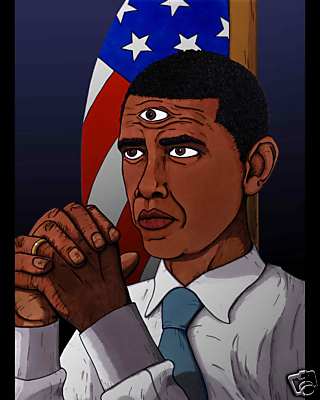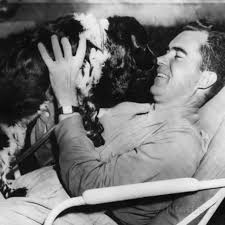9-6: “There’s no doubt about it — we’re at our low point now,” conceded William C Battle, director of the Democratic Presidential campaign in Virginia. An “uphill battle” for Senator John F Kennedy was forecast by Governor Ernest F Collings.
“I think it is a little too close,” said Govern0or Luther Hodges of North Carolina.
“Tennessee looks like a toss-up right now,” said one of the state’s most respected political observers.
Florida will be lost unless the state’s Democratic officeholders join in a unified campaign, according to Governor Leroy Collins and James Jilligan, the party chairman.
And although Texas is the home state of Senator Kennedy’s vice-presidential running mate, Senator Lyndon Johnson, the Republicans claim the lead there. […]
There is also evidence of erosion of the tradional loyalty to the Democratic Party in Georgia, Alabama, Mississippi, Louisiana, and Arkansas. However, few were willing to predict that vice president Richard Nixon could carry any of those five states.
The Republicans have moved quickly to capitilize on the South’s growing conservatism, a by-product of industrialization and urbanization. Party leaders voiced confidence that 1960 would bring the first big Republican victory in the South since Reconstruction. This is the situation facing Senator Kennedy as he prepares for his first extended campaign in the region:
— A negative reaction of unexpected proportion to the liberal Democratic platform and his Roman Catholicism
— The refusal of many Democratic officeholders to actively support the national ticket.
— Enthusiastic receptions for Mr. Nixon and such conservative members of his supporting cast as Senator Barry Goldwater of Arizona. […]
Opposition to the platform is generally assumed to lie behind the failure of Senator Harry F Byrd of Virginia to endorse the Democratic ticket. If his silence continues, many observers believe that it may cost Mr. Kennedy the state. They attribute President Eisenhower’s two victories there to Senator Byrd’s refusal to speak out for Adlai Stevenson. […]
Mr. Kennedy can expect little more than token support from many Democratic officials and not even that from some. A number of those actively campaigning have shown little enthusiasm for their work.
Governor Hollings is the only South Carolina official of prominence who has taken the stump in an attempt to blunt the Republican drivel. Senator Olin D Johnston endorsed the ticket, but Senator Strom Thurmond announced that he was “not in the bag this election.”
C Farris Bryant, Florida’s Democratic Gubernatorial nominee, served notice that “my principal concern is my own campaign.”
Neither of Georgia’s two Senators — Richard Russel and Herman Talmadge, has spoken out for Kennedy. Much of this reluctance, explained a leading Virginia Democrat, stems from a fear of local repercussions.
“Sure, I’ll endorse the ticket sooner or later,” Louisiana Governor Jimmie H Davis said, “But when I do, I’ll have to spend 25 minutes of a 30 minute speech denouncing the platform.”
In the current campaign, the Republicans are encouraging the Southerners to think that the Northern liberals are the party bolters. “The Kennedy organization has run off with the party. By Kennedy organization I refer to that broad alliance that managed to corral all the different shadings of the left — an alliance in which every member of that Left is both represented and happy.” [Republican Southern Campaign Chairman Potter.]
An important catalyst in the process of late has been the dawning realization that they cannot expect concessions from the Democratic Party on racial issues.
9-10: Georgians were surprised during the Atlanta appearance when James V Carmichael, president of Scripto Inc and a 1946 Democratic Gubernatorial candidate, announced that he would campaign for Richard Nixon. […]
J. Oliver Emmerich, editor of the State Times of Jackson, Mississippi, has written, “Many loyal Mississippians out of respect for the past give loyalty to the Democratic Party. But it is a ghost, a skeleton of what it once was. Some Mississippians say, ‘It is the party of our fathers and grandfathers’ yet we know and they know that those honored fobears would be in rebellion were they alive today and confronted by the irresponsible Democratic Party of today.”
9-24: Religion and “radicalism” have emerged as the major factors in the Presidential Contest in Virginia. both favor Nixon over Kennedy in this overwhelmingly Protestant state. […] Virginia’s Catholic population is only about 200,000, less than 5% of the state’s total, and in the “southside” the percentage is much smaller. Fundamentalist Protestant ministers in that area have been preaching against a Catholic President. Anti-Catholic literature has been circulated there and elsewhere.
The issue of “radicalism” cuts deeply through most of the state. This issue is chiefly responsible for the refusal of Senator Harry Byrd, patriarch and titular leader of the State Democratic organization to endorse the ticket. The position of conservatives such as Byrd is that Senator Kennedy and the Democratic party platform stand for a high-spending, centralized, labor-controlled administration. Mr. Nixon and the Republican platform are also regarded as too liberal, but they are considered preferable as the lesser evil.
10-27: President Eisenhower cautioned Virginians against following “false leaders to their destruction.” […]
Some observers saw in the President’s remarks an effort to advance the Presidential election prospects of Vice President Nixon. However, more political significance was seen in the introduction to the President to the campus audience by Senator Harry Byrd.
11-8: [Nixon won Tennessee, Virginia, Kentucky, and Florida. Mississippi voted for a slate of uncommitted Democrats ahead of Kennedy, ahead of Nixon.] […]
With important exceptions, civil rights never became an issue. Most voters seemed to believe they had little choice between the two parties. However, the pledge made and later withdrawn by vice presidential nominee Henry Cabot Lodge that a negro would be named to the cabinet undoubtedly cost the party southern votes. Some white southerners were alienated by Mr. Kennedy’s expressions of interest in the case of Reverend Martin Luther King, a negro integration leader jailed in Georgia on a traffic charge. Most observers contended that these losses were offset by the negro support he picked up.
…………………………..
It’s a bit bemusing to see how the wikipedia article shortens that sidenote into meaningless: —–In the 1960 election, also as a non-candidate, he received 15 votes from unpledged electors: all 8 from Mississippi, 6 of Alabama’s 11 (the rest going to John F. Kennedy), and 1 from Oklahoma (the rest going to Richard Nixon). —– The moral of that being that there’s a story behind every fogged-up fuzz.



